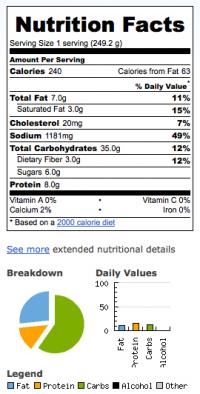The Facts About Sleep and Obesity
 The October New Scientist has a great article that debunks many myths about sleep. They even attack the idea that sleep deprivation causes obesity:
The October New Scientist has a great article that debunks many myths about sleep. They even attack the idea that sleep deprivation causes obesity:
What of the risk of a sleep shortage causing obesity? Several studies have found a link, including the Nurses’ Health Study, which tracked 68,000 women for 16 years (American Journal of Epidemiology, vol 164, p 947).
The hazard, though real, is hardly anything to worry about. It only becomes apparent when habitual sleep is below 5 hours a day, which applies to only 5 per cent of the population, and even then the problem is minimal. Somebody sleeping 5 hours every night would only gain a kilogram or so of fat per year. To put it in perspective, you could lose weight at the same rate by reducing your food intake by about 30 calories per day, equivalent to about one bite of a muffin, or by exercising gently for 30 minutes a week.
In truth, few obese adults are short-sleepers, and few short-sleeping adults are obese. The Nurses’ Health Study also revealed that people sleeping more than 9 hours a night are just as likely as short-sleepers to be fat.
Ever since that study linking sleep deprivation with obesity, I have been faithfully marking how much sleep I get every day, but it looks like all I need to do is make sure I get at least five hours and no more than nine hours in order to be “safe” from sleep-related weight gain. In fact, the weight gain experienced by the short sleepers could be attributed to eating a little extra food while they are awake, so as long as I stay on program, I should be just fine.
On some days, I could sure use an extra hour of sleep, but other days, I really need to use that time for work or family. It’s nice to know that sleeping less than eight hours isn’t necessarily the death sentence that the media has made it out to be.
 Buy Walking Videos
Buy Walking Videos


 Do you see the little smiley faces on my water, vitamin and exercise Healthy Checks? That means that I’ve fulfilled my requirements for the day. I know it’s such a small thing, but I really like trying to get all smiley faces every day. It feels like such an accomplishment when the program gives me a smiley face. I look at that field almost more than I check whether I have enough points left in the day. You see, I need to eat one more serving of dairy, two more servings of veggies and two teaspoons of healthy oil in order to get a full complement of smiley faces.
Do you see the little smiley faces on my water, vitamin and exercise Healthy Checks? That means that I’ve fulfilled my requirements for the day. I know it’s such a small thing, but I really like trying to get all smiley faces every day. It feels like such an accomplishment when the program gives me a smiley face. I look at that field almost more than I check whether I have enough points left in the day. You see, I need to eat one more serving of dairy, two more servings of veggies and two teaspoons of healthy oil in order to get a full complement of smiley faces.







